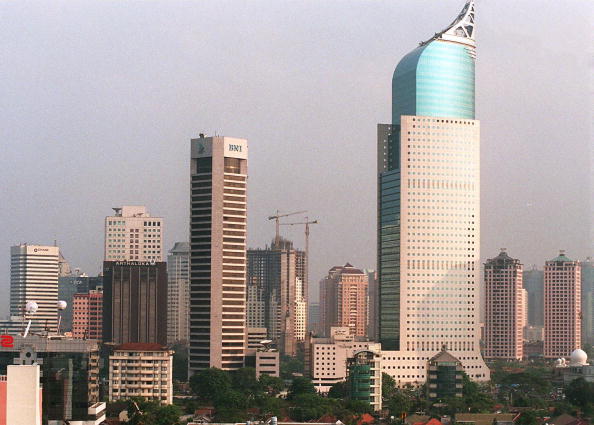The known and unknown implications of Indonesia's negative investment list have disappointed foreign investors and made legal professionals very guarded in their advice. Raghavendra Verma reports
The known and unknown implications of the negative investment list released by Indonesia in April have caused disappointment among foreign investors and made legal professionals very guarded in their advice.
“It is a step backwards,” says Andrew White, managing director of American Chamber of Commerce in Indonesia, “Foreign investors are concerned Indonesia is becoming less receptive to investment, and there could be more restrictions to come.”
The content of the new list surprised many since according to White, the industry was actually expecting opening up of investments. Perhaps political considerations weighed heavy on this decision.
Takeshi Komatsu, partner at Mori Hamada & Matsumoto, calls the changes in the new negative investment list an example of economic nationalism in Indonesia, and a move that will create hassles for businesses. “Due to the changes, we will first need to figure out as to how to set up the business structures so that we do not conflict with the new rule,” he says, “This means that the transaction cost for investors would increase.”
The issues relate to the new list requiring a large amount of time and other resources from company management, lawyers, accountants and private consultants. Already, says White, setting up a business in Indonesia takes one to two months and multiple steps, compared to just a few hours in Singapore.
According to Komatsu, foreign investors are most worried with the dramatic change in the foreign direct investment restriction on distributorship businesses. Previously, foreigners could invest 100 percent, in the business, but now that figure has dropped to 33 percent.
E-commerce too is an attractive sector in Indonesia due to poor road and limited infrastructure in this spread-out archipelago, but now, it could potentially be out-of-bounds for foreign investors. White says that “there are many venture capitalists in the Silicon Valley in the U.S. who would love to invest in some of the applications and e-commerce initiatives.”
According to White, e-commerce companies largely depend upon investments from venture capitalists and if foreign venture capitalists or angel investors are prohibited from investing in and mentoring Indonesian e-commerce entrepreneurs, it could lead to a shortage of critical start-up capital. “The e-commerce chain in Indonesia may not develop at all, or it may not happen at the intended speed,” he says.
Indonesia’s strong oil and gas sector is also likely to face difficulties with new entries in the negative investment list. “Already, government approval for new projects had slowed down and there are fewer new discoveries,” says White.
As per the new regulations, oil and gas drilling, installations of onshore pipelines, marketing, storage and onshore oil and gas production are closed to foreign investment, while a limit of 49 percent foreign investment has been set for offshore pipeline installations, oil and gas surveyance and small- scale power generation.
The petroleum exploration industry, which depends upon contracting services to build platforms and other infrastructure, will now be forced to use domestic companies which might not have the required technologies, warns White. “It is very unlikely that a foreign company will share its technology with another company,” he says, “The next generation of energy projects may not take place and, therefore, the implications are tremendous.”
Furthermore, according to White, foreign investments in manufacturing using natural resources, such as oil and gas, are particularly vulnerable to policy changes as their return on the capital often takes 20 years to materialise. “Those companies absolutely depend upon the rule of law and stability in terms of the regulatory regime,” he says.
Foreign investment limitation in cold storage facilities, warehousing and certain multimedia services such as data communication system services and network access points have also been reduced. For cold storage activity, there is a different threshold in different regions of the country. However, the pharmaceutical sector is an exception where the limit has been increased from 75 percent to 85 percent.
The increasing restrictions are considered as detrimental not only from a foreign investment point of view, but also for the whole of the Indonesian economy. According to White, the uncertainty in the regulatory environment is making Indonesia less competitive from a cost-and-profit standpoint.
There are other problems too. “Even companies who are manufacturing here for exports are finding it difficult to bring in materials,” he says.
With general elections due in July, political considerations are likely to be given higher priority, which in turn, is likely to hurt the economy. “Politics is trumping policy,” he says, “If the investment situation does not improve, particularly in the extractive sector, the impact on unemployment will ripple forward.”
However, according to White, Indonesia still offers many positive factors for foreign investors. “There is a huge population, young demographics, a growing middle class, rising disposable income, rich natural resources, strategic location in the ASEAN and also an underdeveloped infrastructure, which is both an opportunity and a problem,” he says, “There are a lot of real push factors, but not many pull factors.”
The seriousness of the provisions related to the new list is not yet fully clear as there are multiple interpretations on offer. “We are still studying the list and trying to understand the implications through discussions with ministries,” says White, “ Clarity will come after a case-by-case and sector-by-sector discussion.”
According to Komatsu, “the economy needs stimulation to kick off, and we hope that the government will not undermine the potential and possibilities by restricting foreign investments too much.”
